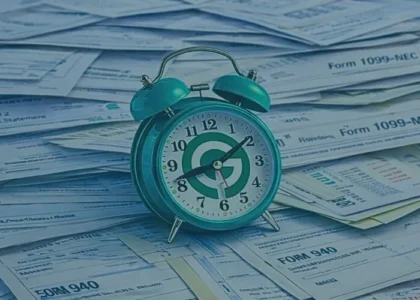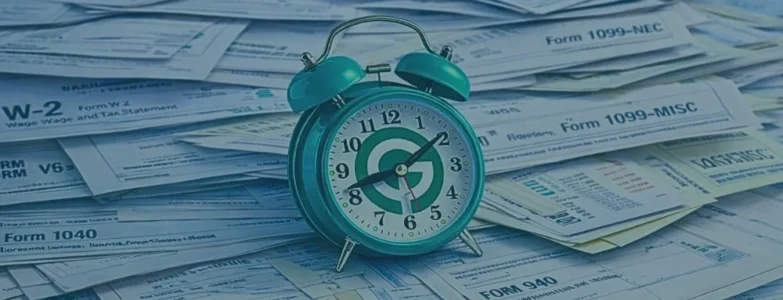By The Guillen Pujol CPAs Newsroom
On June 30, 2025, Governor Ron DeSantis signed into law House Bill 7031, a sweeping $2 billion tax relief package—one of the largest in Florida’s recent history. Tucked within the legislation is a measure drawing national attention: the Hunting, Fishing & Camping Sales Tax Holiday 2025.
This special holiday suspends sales tax on a broad range of outdoor recreation supplies—everything from tents and tackle boxes to firearms and ammunition—beginning September 8 and running through December 31, 2025. Spanning 114 consecutive days, it is among the longest tax holidays Florida has ever enacted. For the first time, it also covers firearms and ammunition, tying the measure directly to the state’s embrace of Second Amendment–related purchases.
The initiative aligns with Florida’s broader positioning as a low-tax state and part of the governor’s strategy to deliver large-scale, consumer-facing tax relief. It complements other high-profile measures included in HB 7031, such as the permanent elimination of the Business Rent Tax, which took effect on October 1, 2025, and new exemptions on everyday essentials and recreational goods.
Beyond the political framing, the 2025 holiday has sparked significant media interest and public discussion. It promises historic savings for households, outdoor enthusiasts, and families preparing for the hunting and fishing season — while also creating operational and compliance considerations for the businesses serving them. For both shoppers and business owners, understanding what qualifies, what doesn’t, and how to prepare will be critical to making the most of this unprecedented tax holiday. The Florida Department of Revenue has issued detailed guidance for businesses on implementation and compliance.
What This Tax Holiday Means for Shoppers
For outdoor enthusiasts—hunters, anglers, and campers—this holiday creates a significant opportunity for savings at the register. During the designated period, qualifying purchases are exempt from Florida’s six percent state sales tax plus any applicable discretionary county surtax. In practice, most households will see effective savings of six to seven percent depending on their jurisdiction. According to projections reported by outlets such as NBC Miami, state economists estimate that the holiday could generate around $44.8 million in consumer savings, underscoring the scale of this program and the attention it has drawn among families and sportsmen across Florida.
The extended timeframe gives buyers more flexibility to plan larger-ticket purchases—such as tents or full fishing setups—and to spread out smaller ones without the pressure of a single weekend rush. Still, it is important to review carefully which items qualify, their price caps, and the exclusions that apply in order to avoid surprises at checkout.
Qualifying Products and Price Limits
- Firearms and Ammunition. Handguns, rifles, and shotguns, along with ammunition as defined in Florida law, are exempt during the holiday.
- Archery Equipment. Bows, crossbows, and related gear such as arrows, bolts, quivers, releases, sights, and wristguards qualify.
- Firearm Accessories. Select items including holsters, pistol grips, stocks, optics, cleaning kits, and charging handles are included.
- Fishing Supplies. Bait and tackle priced at $5 or less per item, or $10 or less when sold together; tackle boxes or bags up to $30; rods and reels up to $75 individually or $150 when sold as a set.
Camping Gear. Flashlights and lanterns priced at $30 or less; stoves, collapsible chairs, hammocks, and sleeping bags priced at $50 or less; tents priced at $200 or less.
If an order is placed online and accepted by the seller or marketplace during the holiday period for immediate shipment, the exemption applies—even if delivery occurs after December 31.
Products That Do Not Qualify
While the holiday covers a wide range of items, some purchases fall outside the exemption and warrant special attention:
- Commercial Use. Purchases for business or resale purposes do not qualify; the holiday is limited to personal consumption.
- Excluded Locations. Sales made within theme parks, entertainment complexes, public lodging establishments, or airports are not exempt.
- Rentals and Repairs. The program does not apply to rentals or repair services of otherwise qualifying items.
- Non-qualifying Accessories. Certain firearm add-ons, such as silencers or suppressors, are not included despite the broader “Second Amendment” branding attached to this holiday.
Implications for Retailers and Business Owners
While the Sales Tax Holiday is primarily designed as relief for consumers, it also carries important consequences for businesses operating in the hunting, fishing, and camping sectors. Retailers can expect a noticeable increase in customer traffic and sales volume, particularly in high-demand items such as firearms, ammunition, fishing rods, tents, and core camping gear. This creates a valuable commercial opportunity, but it also introduces new challenges in inventory planning, supply chain coordination, and customer service.
At the same time, compliance becomes critical. Misclassifying an item as exempt when it does not qualify—or failing to extend the exemption to an eligible item—can lead to penalties and expose a store to legal disputes or tax audits that could otherwise be avoided. The holiday is strictly limited to purchases for personal use, not commercial inventory, which means retailers need safeguards to prevent attempts at bulk buying for resale. Certain business models, such as rentals, repair shops, or venues located in excluded spaces like airports or entertainment complexes, should pay particular attention, as they remain outside the scope of the program.
Key considerations for business owners
Retailers and specialty stores in these sectors may want to keep the following in mind to benefit from the holiday without creating compliance risks:
- Staff training. Cashiers and sales staff must be able to recognize which products qualify, the applicable price thresholds, and which items remain taxable. Errors at the point of sale can create liabilities after the fact.
- Documentation and records. Maintaining clear receipts, invoices, and POS reports is essential, so that any review or audit can confirm the exemption was applied correctly.
- Preventing abuse. Establishing internal policies helps block transactions that appear to be for personal use but are in fact aimed at stocking commercial inventory.
- Supplier coordination. With demand likely to spike, retailers should confirm availability of the most popular items and adjust restocking schedules to avoid shortages during the holiday.
- Advisory support. Staying in close communication with tax and business advisors, including CPAs, can help owners navigate edge cases, keep compliance airtight, and align their accounting with state requirements.
The holiday thus represents more than a sales boost: it is also a moment for retailers to tighten compliance processes and strengthen operational readiness while leveraging professional guidance.
Need help with compliance during Florida’s Hunting, Fishing & Camping Sales Tax Holiday 2025?
At Guillen Pujol CPAs, we help business owners and high-net-worth clients prepare for state and federal regulatory measures, protecting their capital through precise and strategic tax compliance. Our team provides comprehensive support that includes preparing audit-ready documentation and reports, ensuring the correct application of exemptions and price limits, and managing the county discretionary surtax with accuracy and consistency.
We make sure every transaction complies with the requirements of the Florida Department of Revenue. Once the holiday period concludes, we assist our clients with the review and accounting close of both exempt and taxable operations, ensuring that all records remain organized, transparent, and ready for any potential audit.
With extensive experience in IRS representation and capital-preservation strategies, our firm is prepared to guide you through every step of the process. For expert, actionable support, schedule a consultation with our advisors through Book a Consultation.
Take Action Now: Need professional tax guidance? Contact us today.
Planning Tomorrow, Together, with GPCPAs.
Trusted by Businesses Worldwide
Editor’s Note: This post is part of the ‘GPCPAs Info Hub,’ an initiative dedicated to empowering you with the knowledge and strategies needed to navigate the complexities of the U.S. tax system and financial strategies. Visit our Information Hub, a curated resource offering the latest in tax, economic, and business news, alongside actionable guidance on tax strategies, accounting, and business advisory—because Planning Tomorrow starts here.
- AI, Tax Risk, and Professional Judgment: Why Automation Alone Can Increase IRS Exposure
- 2026 Tax Calendar: Your Guide to IRS Deadlines All Year
- How Realtors Can Reduce Their Taxable Income Through Smart Entity Selection and Advanced Tax Planning
- After the Shutdown: How IRS Cuts Continue Affecting Taxpayers
- IRS Tax Brackets for 2026: What Business Owners Need to Know











